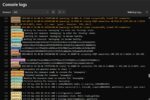
Microsoft announced that it is releasing a new open-source toolkit that allows researchers and developers to create chatbots with different personas called the Intelligent Conversation Engine: Code and Pre-trained Systems (ICECAPS).
Whether conversations need to be formal of casual, the toolkit enables chatbots to tailor dialogue to fit the scenario. Microsoft has worked on the solution, which leverages TensorFlow, by including personalization embeddings, maximum mutual information-based decoding, knowledge grounding, and an approach of enforcing more structure on shared feature representations.
“One of the major bottlenecks in training conversational systems is a lack of conversational data that captures the richness of information present in the abundance of non-conversational data that exists in the world,” Microsoft wrote in a post. “To train an intelligent agent endowed with all the knowledge contained within Wikipedia or other encyclopedic sources, for instance, Icecaps implements an approach to knowledge-grounded conversation that combines machine reading comprehension and response generation modules.”
Temenos acquires Kony for its banking platform
Temenos is acquiring Kony, the digital banking SaaS company, to expand its cloud-native, cloud-agnostic digital front office product Temenos Infinity to be finalized in Q4 2019.
Kony works to help banks transform the experience for their clients with digital banking applications and its market-leading development platform, all of which are served through a cloud hosted SaaS model, according to a post.
“The acquisition of Kony, the US #1 digital banking SaaS company is highly strategic and will allow us to grow both our US and our digital front office business faster, while being highly accretive and synergistic to the rest of our business,” said Max Chuard, the CEO of Temenos.
Facebook is launching the AI Language Research Consortium
Facebook announced the launch of its AI Language Research Consortium, a community of partners working together to advance priority research areas in natural language processing (NLP).
The consortium members, who won Facebook’s three calls for research proposals in April, will also receive funding for their research, participate in an annual research workshop where they can present their latest work, and have access to auxiliary events at major NLP conferences.
The winning research proposals can be viewed here.
Google expands on Google Play bug bounties
Google expanded its bug bounties on Google Play, making changes to the Google Play Security Reward Program (GPSRP) and launched a new Developer Data Protection Reward Program (DDPRP).
The scope of GPSRP will now include all apps in Google Play within 100 million or more installs, which are now eligible for rewards. Google said that vulnerability data from GPSRP helps Google create automated checks that scan apps in Google Play for similar vulnerabilities.
In addition, Google launched the Developer Data Protection Reward Program in collaboration with HackerOne, “to identify and mitigate data abuse issues in Android apps, OAuth projects, and Chrome extensions,” according to Google’s blog post.






